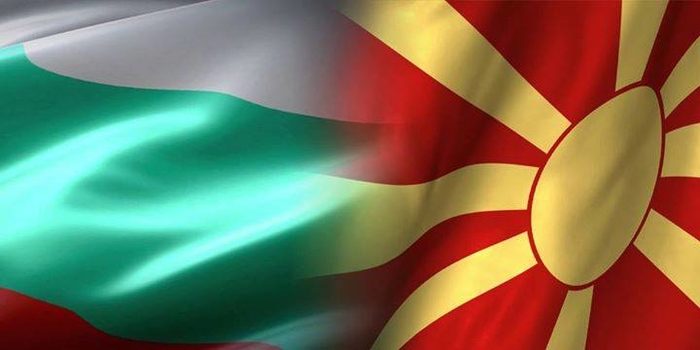Zoran Zaev made promises to our eastern neighbor and did not fulfill them and that is creating a lack of trust and affecting our relations, said VMRO-DPMNE President Hristijan Mickoski during a TV interview. Bulgaria was openly endorsing Zoran Zaev for the July 15 elections and it left a clear impression that Zaev made promises to settle a number of national identity issues in Bulgaria’s favor. Mickoski said that his failure to deliver is what lead to the veto Bulgaria now imposed on Macedonia’s EU accession.
When I was warning about this issue I was accused of spreading fake news. But now we hear from Bulgarian Defense Minister Karakacanov that this was not fake news, it was actually reliable information and is causing Bulgaria to harden its positions, Mickoski said.
Mickoski recently revealed that Zaev was discussing a new treaty with Bulgaria, that would make changes to the Macedonian Constitution and ensure that Macedonians accept a Bulgarian reading of history, mainly that we are derived from Bulgarians.
I do not begrudge Bulgaria, it is clear that everybody will protect his national interests. We can’t fault our eastern neighbor. I’m just trying to warn our fellow citizens that as long as Zoran Zaev and this SDSM party leadership remain in office, as long as their project is being implemented, we will be victims to the concessions they have made in the past. We will never step forward with the weight of the concessions Zaev promised he will make, only for the purpose of getting support to gain power, Mickoski said.
Bulgarian media are now reporting that the main demands the country wants met if it is to allow the opening of accession talks are threefold. Bulgaria wants an end to the initiative to have the accession talks conducted in Macedonian – a move which Zaev grandly announced as a major win for his Government. Instead, Bulgaria wants the language to be referred to as “the official language of the candidate country”. Speaking at an EU event in Skopje, Macedonian Deputy Prime Minister Nikola Dimitrov today said that the Macedonian language will become an official language of the EU when Macedonia becomes a full member state. This implies his readiness to accept the Bulgarian formula for now, but with a clear announcement that once Bulgaria allows Macedonia in the EU, the country will have its language elevated to the status of an official EU language. This is likely to result in Bulgarian demands for more serious, permanent changes, such as amendments to the Macedonian Constitution – which Greece also required in the Prespa treaty.
Bulgaria’s second demand is that Macedonia is referred to under the full imposed name “Republic of North Macedonia” and not as “North Macedonia” because Bulgaria fears it could imply territorial claims to the province of Blagoevgrad or Pirin Macedonian Bulgaria. And lastly, and most importantly, Bulgaria wants “good neighborly relations to be made a criteria of membership for Macedonia”. This means that it would have the open-ended right to raise various issues during the course of the accession talks and demand they are met by the candidate country.




Comments are closed for this post.